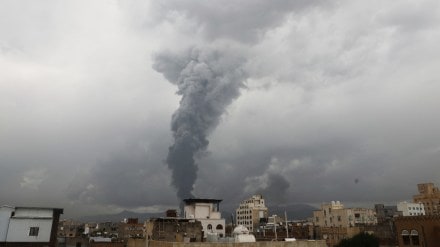Israel on Sunday launched air strikes on Yemen’s capital Sanaa, after the Houthis fired a missile on Friday that Israel said contained cluster munitions. The strikes hit a military complex that included the presidential palace, power stations, and a fuel depot. According to Houthi officials, four people were killed and 67 were injured, a report by BBC said.
The Israeli military said this was the first time the Iran-backed Houthis had used cluster bombs in the ongoing conflict with Israel. Local media reported that the military is now investigating why its defense systems failed to intercept the missile. What’s worth noting here is that more than 100 countries have banned cluster munitions.
Israel’s Prime Minister Benjamin Netanyahu and Defence Minister Israel Katz personally oversaw the retaliatory strikes from a command centre in Tel Aviv. After the strikes were carried out, Netanyahu said Israel would respond strongly to anyone who attacks or threatens to attack their country.
Watch video here:
What are cluster munitions?
Cluster munitions are weapons that release many small bomblets from a rocket, missile, or artillery shell. These bomblets spread out in the air and cover a wide area.
They are meant to explode on impact, but many fail to do so, especially if they land on soft or wet ground. These unexploded bomblets can go off later if someone touches or steps on them, causing serious injury or death.
Houthis’ fired ballistic missile toward Israel on Friday
The Houthis on Friday said that they had fired a ballistic missile toward Israel, describing it as a move to support Palestinians in Gaza. An Israeli Air Force official said on Sunday that the missile likely carried multiple sub-munitions designed to explode on impact, a Reuters report said. The official added this was the first time such a missile had been launched from Yemen.
Since Israel’s war in Gaza against Hamas began in October 2023, the Iran-backed Houthis have targeted ships in the Red Sea, saying these actions show solidarity with Palestinians. Israel too has carried out airstrikes on Houthi-controlled areas in Yemen.
Abdul Qader al-Murtada, a senior Houthi leader, on Sunday said that the group, which controls a large part of Yemen’s population, would continue its operations in support of Palestinians. He stressed that the Houthis would not abandon Gaza, regardless of the cost.
